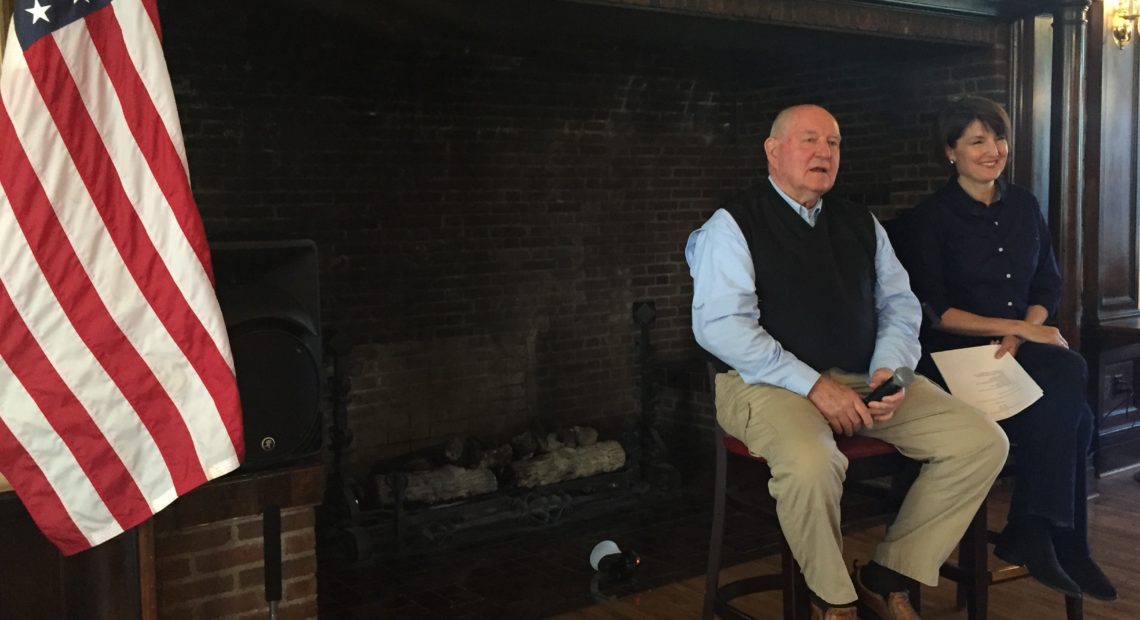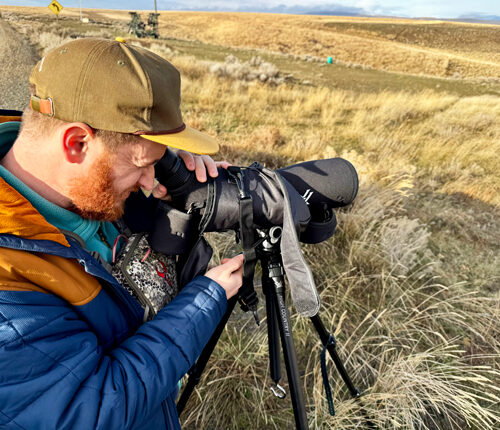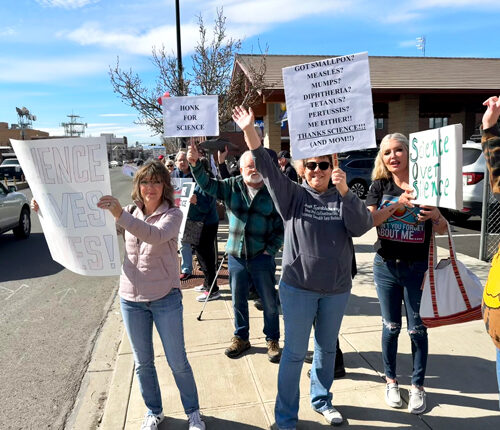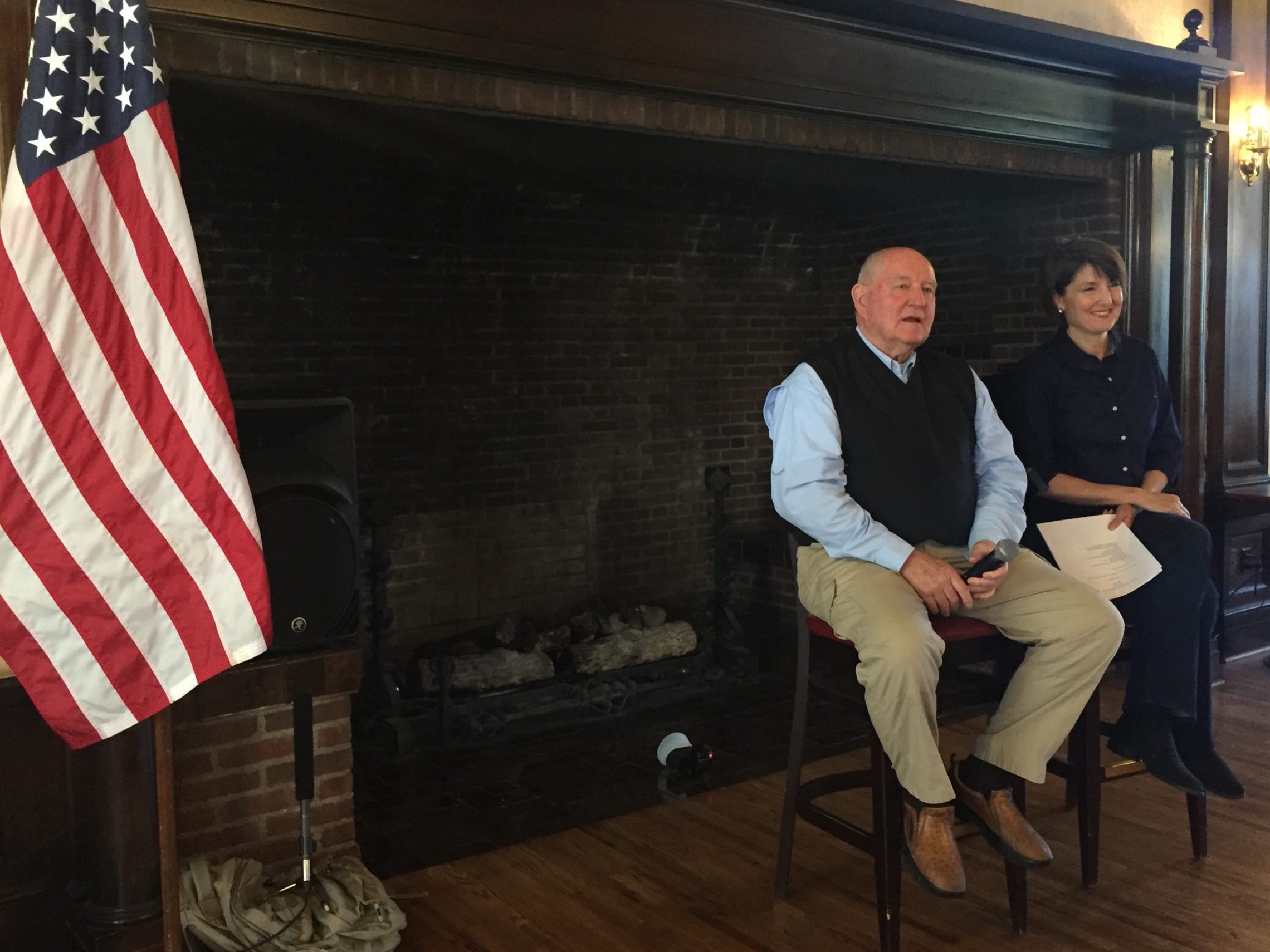
USDA Secretary Says Plan To Help Farmers Affected By Tariffs Coming In September
Listen
Trade was at the forefront of the conversation with U.S. Secretary of Agriculture Sonny Perdue Monday in Spokane.
Perdue said President Donald Trump has assured him “he’s not going to allow agricultural producers to bear the brunt of trade disruptions” with China, Canada or Mexico—countries Perdue calls “the big three” for U.S. international trade.
But those are also countries that announced new tariffs on crops like apples, soybeans and wheat in the last month.
“Farmer uncertainty is there,” Perdue said. “There’s a legitimate anxiety over there about ‘do I sell my crop at these low prices, or do I hold on or what?’”
During a nearly hour-long breakfast meeting, Perdue told local industry leadership “nothing is off the table.”
“Mr. Secretary, what am I supposed to tell my farmers when they call … asking me how the government is going to help them get through the trade environment?” Washington Wheat Growers Association Executive Director Michelle Hennings asked.
After weeks of questions, but no details on what a mitigation strategy might entail, Perdue announced Labor Day is his deadline to develop a plan.
“The mitigation strategy that we refer to will hopefully give farmers some idea whether they should hold those crops or sell them and if they hold or sell, what they can expect from the government,” he said.
But there are crops that are harvested before Labor Day—things like cherries, blueberries and fresh fruit crops that can’t be stored. Much of the wheat crop is also harvested before Labor Day, in particular soft white wheat. Washington is the only state in the nation that produces it, and Hennings told the Secretary 90 percent of the crop is shipped overseas.
Perdue said the USDA is looking at buying crops that might suffer prior to his early-September deadline under a provision called “Section 32.”
“That’s’ where we buy crops that don’t have a place to go and give them to school lunch programs and food banks. So, we’re using that and will continue to use that program as well,” Perdue said. Section 32 is a Depression-era program that uses funds from customs receipts to buy surplus crops.
“It still won’t cover the damage that’s going to be done,” Hennings said. She believes even a subsidy won’t help if the trade dispute continues.
In each of the last two years, spending under Section 32 has been at its highest since 2009. Although he didn’t say so directly, Perdue also may not see the use of Section 32 as a permanent solution.
“We’d rather have trade then aid,” he said. “There’s not a farmer in your area that wouldn’t rather have a good crop at a fair price than get a government check.”
Related Stories:

What’s fuzzy, cute and sold out? Chicks
As egg prices surge, baby chicks have been selling out across the region — and the country. (Credit: Susan Shain / NWPB) Listen (Runtime 3:59) Read The first person showed

Searching for sage grouse: Looking for a chicken-sized needle in south-central WA
Seth Hulett, Audubon Washington’s senior program manager of the Columbia Plateau, searches through his spotting scope for sage grouse. (Credit: Courtney Flatt / NWPB) Listen (Runtime 4:12) Read In south-central

Dozens in Yakima rally to support science for national protest
Around 50 people gathered for Yakima’s Stand Up for Science rally on Friday. People around the country attended science protests at the same time. (Credit: Courtney Flatt / NWPB) Listen















